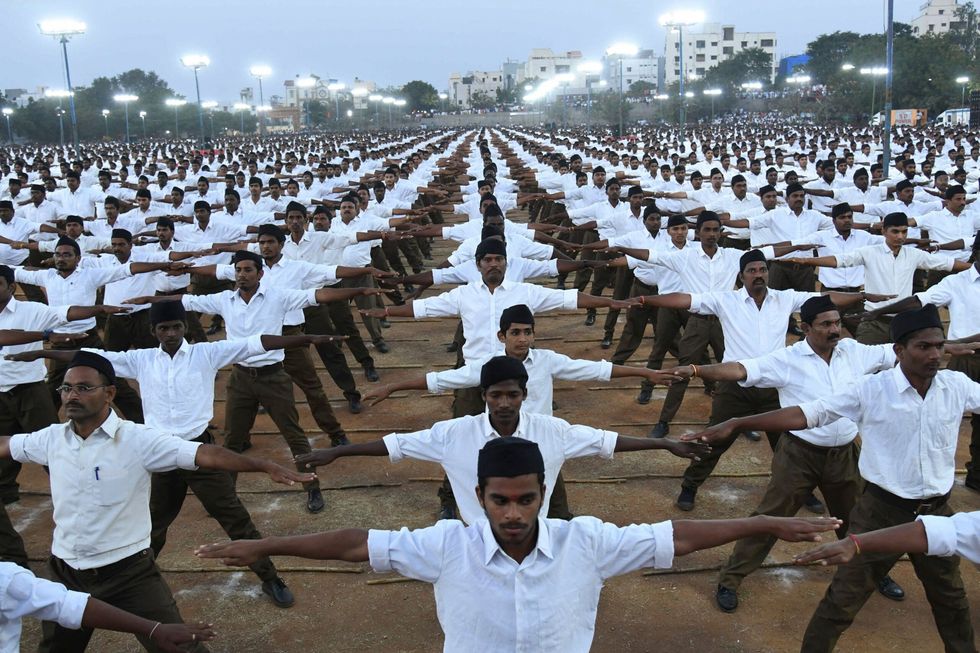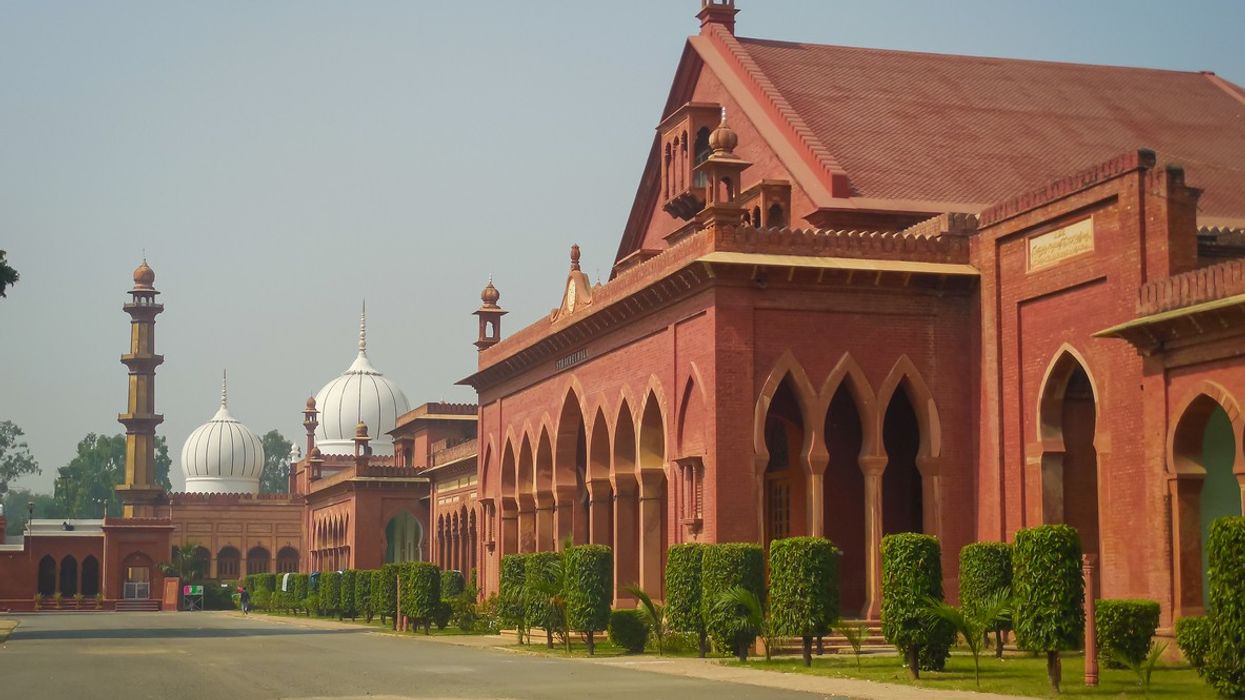A HINDU group closely linked to Indian prime minister Narendra Modi is installing Muslims loyal to it in leadership positions at Muslim universities as part of a push to garner Muslim votes ahead of national elections, officials said.
The Rashtriya Swayamsevak Sangh (RSS), which Modi joined in his youth and which is the de facto parent of his political party, is trying to woo Muslim voters away from Congress and other parties that they have traditionally supported.
Modi’s Bharatiya Janata Party (BJP), which won about nine per cent of the Muslim vote in the past two general elections, is targeting up to 17 per cent in the elections due by May. Opinion polls suggest the BJP, which has no Muslim members in parliament, will easily win a rare third straight term.
“It is for certain that the BJP will win a much bigger percentage of Muslim votes than the last time,” said senior RSS leader Indresh Kumar, chief patron of its Muslim wing, which said it is trying to win over the majority of India’s 200 million Muslims.
Modi denies religious discrimination exists in India.
The RSS campaign to put Muslim allies in top university roles, which has not previously been reported, marks a new approach to working from within the community, officials told Reuters. Despite its strongly Hindu identity, the RSS also has divisions working with Christians, Sikhs and other minority groups.
Membership in the RSS’s Muslim Rashtriya Manch, formed in 2002 for dialogue between Muslims and the RSS, has jumped to one million from 10,000 before Modi took office a decade ago, said spokesperson Shahid Sayeed.
India has more than a dozen universities catering to Muslims, established to boost a community that lags Hindus educationally, economically and socially.

The government has long seen some universities, especially in Muslim-majority Kashmir, where India has fought an insurgency for decades, as hotbeds of Islamic activism and even sanctuaries for people hostile to India’s interests.
But now the RSS’s Kumar recommends 99 per cent of the vice-chancellors, or heads, of Muslim universities, and the government largely accepts his recommendations, Sayeed said.
In the past, these schools were “antiIndia”, disrespecting the Indian flag and not celebrating events such as Independence Day and Republic Day, but that is changing, Kumar told Reuters.
“The network among teachers is building very well, students are coming on board,” he said. “Along with studies, a sense of love for the nation in these universities is building up.”
The RSS Muslim wing, he said, seeks to create a “well-organised system to reach out to the youth and the teachers” in Muslim-majority universities such as Aligarh Muslim University, the University of Kashmir, Khwaja Moinuddin Chishti Language University, Jamia Millia Islamia, Jamia Hamdard and Maulana Azad National Urdu University.
The vice-chancellor of the University of Kashmir raised the Indian flag on Independence Day on August 15, after which the national anthem was sung, a video uploaded by the university shows. That was not always the case in the past, said a senior professor.
“Playing the national anthem is mandatory for every function now,” said the professor, who asked not to be named because of the sensitivity of the issue. “It is also ensured that all the students and staff stand up as a mark of respect.”
The universities did not respond to requests for comment.
At Aligarh Muslim University, India’s biggest Muslim university with nearly 25,000 students, the vice-chancellor from 2017 to 2023 was Tariq Mansoor, who resigned in April last year to become a BJP state lawmaker and was named a party national vice president three months later.
Many members of faculty close to the BJP or the RSS have joined the university in recent years, said Syed Ali Nadeem Rezavi, a professor of mediaeval Indian history. “My vice-chancellor knows that he can continue as a vice-chancellor only if he pays obeisance to Modiji.”
Mansoor declined to comment. Modi’s office and the Ministry of Education did not respond to requests for comment.
BJP spokesperson Shazia Ilmi said there was nothing unusual in the government choosing its own nominees to head institutions. “Every government does that,” Ilmi reiterated. “Also, nationalism is a good thing and Muslims are happy with nationalism.”
But Roop Rekha Verma, a former vicechancellor of the University of Lucknow, said: “If ideology is given priority over qualifications and lots of people are placed through the back door holding the same ideology, then it is very damaging to the intellectual atmosphere.”
The opposition Congress, which governed India for most of its post-independence history, believes everyone has a right to seek votes from different groups, but it is wrong to impose any ideology, said spokesperson Pawan Khera.
“There should be a good mix of all good ideologies in educational institutions,” Khera further said. “Why are you imposing one ideology on education institutes?” (Reuters)




